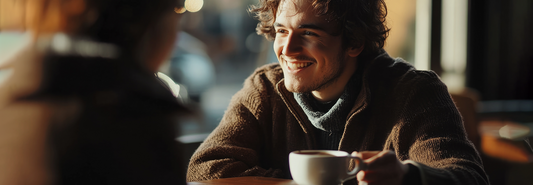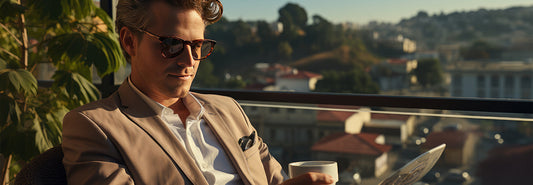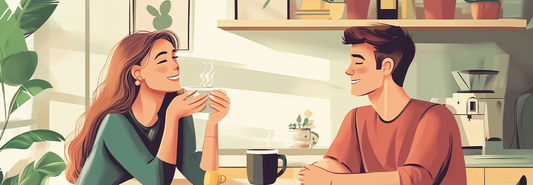
The Bitter Truth: Why Real Coffee Shouldn’t Taste Like Dessert
We need to talk. Because somewhere along the way, coffee stopped being coffee — and started tasting like melted candy bars with a splash of caffeine. The menus got longer, the toppings got taller, and suddenly, what we once sipped for clarity became a sugar bomb in a branded cup.
Let’s be clear: this isn’t coffee snobbery. It’s about calling out a quiet crisis in flavor integrity — and reclaiming the bold, bitter brilliance that made coffee iconic in the first place.
Mocha Milkshake, or Coffee? Choose a Side.
Frappes, syrups, whipped cream mountains, cookie crumbles — and somewhere deep beneath it all, a splash of espresso. That’s what coffee has become for a generation raised on TikTok recipes and seasonal “drops.” The result? Beverages that are more dessert than drink, with caffeine playing a minor supporting role to caramel, chocolate, and enough sugar to short-circuit your nervous system.
We’re not against indulgence. But let’s call it what it is: a milkshake with marketing. And the problem is — people start to believe this is what “good coffee” tastes like. So when they try something real, something bold, something bitter... they flinch. They think it’s too strong, too raw, too much. But that’s the point. Coffee isn’t supposed to be smooth jazz all the time. Sometimes, it’s meant to slap you awake. It’s supposed to have character. Edge. Depth. That’s not bitterness — that’s authenticity.
The Rise of the Palate Snob — And Why That’s a Good Thing
We hear the phrase “coffee snob” thrown around like it’s an insult. But what’s really being criticized? People who care about sourcing, roast profiles, flavor notes, and brewing techniques?
That’s not snobbery. That’s standards. The rise of the conscious coffee drinker — the one who values origin, process, and craft — is a necessary evolution. It’s the same shift that happened with wine, chocolate, and even bread. We went from packaged and processed to artisanal and aware. And now it’s coffee’s turn. Being picky about your brew doesn’t make you pretentious. It means you’ve tasted the difference, and you don’t want to go back. That’s not elitism. That’s education.
Bitterness Is Sophistication: Let’s Stop Apologizing for It
Here’s the unpopular truth: bitterness is a beautiful thing. It’s complex. It’s layered. It sharpens the senses and slows you down. But thanks to years of hyper-sweet, over-dressed drinks, we’ve been taught to avoid bitterness like it’s a flaw.
It’s not. In fact, bitterness is often where the real flavor lives. It’s where the soil speaks. Where the roast comes through. It’s the quiet confidence of a well-made cup — the kind that doesn’t need syrup to stand tall. At Ristavo, we don’t sweeten our story to make it easier to swallow. We celebrate the integrity of every bean. We believe that complexity is worth savoring — and that those who appreciate it are ahead of the curve.
The Final Pour
We’re not saying there’s no room for fun in your cup. But if your coffee tastes more like cake than craft, it might be time to rethink the ritual. Because coffee isn't just about sugar highs — it’s about sensory highs. It’s about clarity, depth, and the kind of flavor you don’t forget. Bitterness isn’t a flaw to cover up. It’s a feature to lean into.
So next time you’re offered extra syrup, ask yourself — are you softening the coffee, or diluting the experience? At Ristavo, we stand for the real thing. Bold. Thoughtful. Unapologetically grown-up. Because dessert is fine — but coffee? Coffee should taste like coffee.





